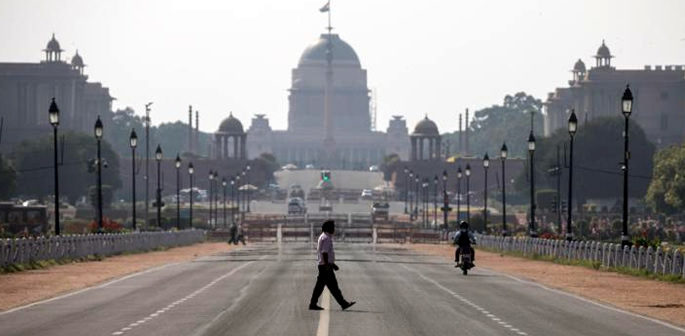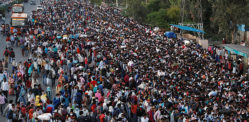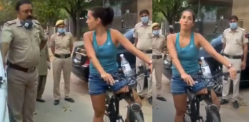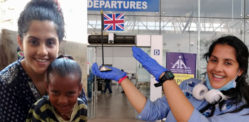“To save India and every Indian, there will be a total ban"
Prime Minister Narendra Modi announced a 21-day lockdown of India in a bid to stop the spread of Coronavirus.
While there are a relatively low number of cases compared to the rest of the world, it is possible that it could become a major health crisis for the country.
There are less than 500 confirmed cases and only nine people have died.
However, a combination of poor public healthcare and expensive private healthcare could lead to the situation worsening.
On March 24, 2020, PM Modi addressed the nation and stated that saving people’s lives was the priority.
He said: “To save India and every Indian, there will be a total ban on venturing out of your homes.”
PM Modi went on to say:
“If we don’t handle these 21 days well, then our country, your family will go backwards by 21 years.”
Following the announcement of a national lockdown, uniform guidelines will be issued for the entire country.
The Ministry of Home Affairs has issued guidelines of effective measures and exceptions to the essential services during the lockdown.
A 24/7 hotline will be introduced to assist states during this period.
According to PM Modi, the national lockdown will be under curfew. This means that leaving the house for anything other than an essential purpose will be punishable.
Many services like hospitality, transport and places of worship will not be operating during the lockdown period.
In contrast, certain government offices, hospitals, grocery stores, banks, petrol stations, essential manufacturers and essential transportation will remain operational.
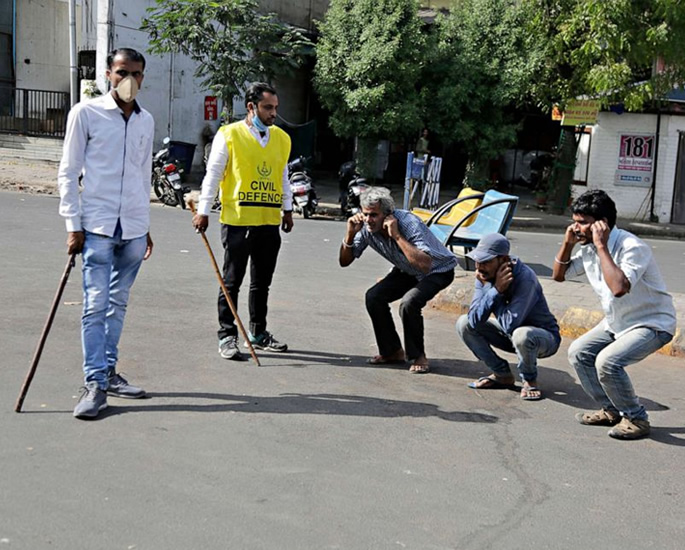
While the closures have been done to ensure the safety of citizens, it will undoubtedly have an effect on some people, especially the poor as they are temporarily out of work, meaning that they cannot earn a living.
One person is Shaikh Bahaduresha. He struggled to make ends meet by running a taxi service, making $5 a day.
He managed to save enough money with his wife so that they could move into an apartment, however, the lockdown means he has no customers so he can only afford rice and lentils and he cannot pay his rent. This could result in him becoming homeless again.
Mr Bahaduresha said: “I have no savings. My wife and I will be on the street again.
“The USA is a VIP country, you can block it for a month and it’s okay, but in India, you have to take care of the poor.”
Many residents revealed that they were stretching out meals. Ajay Kewat said his family only had food for a few more days.
“I’m afraid that after a week, there won’t be food.”
The lockdown highlights how difficult it is for countries to tackle the virus without destroying livelihoods.
Gilles Verniers, a political science professor at Ashoka University said:
“So far, the prime minister’s intervention has put the onus of responsibility on citizens … but it has fallen short of explaining clearly what the state is going to do.
“There is nothing that looks like a national plan on the social front.”
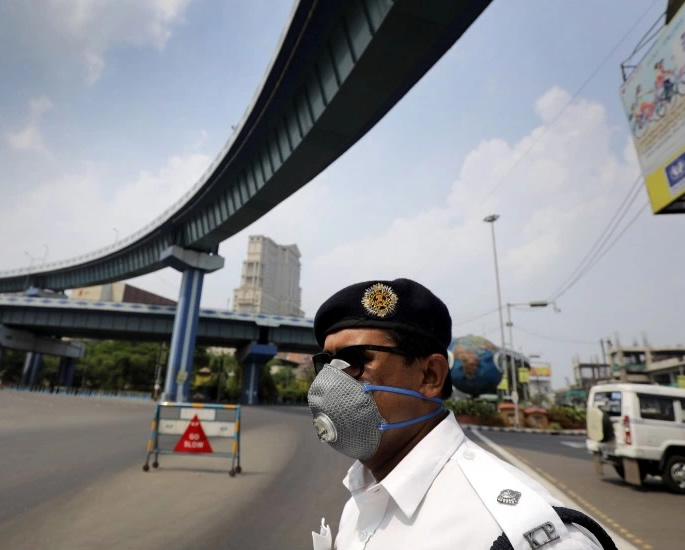
To ensure that people abide by the lockdown guidelines, punishments will be issued to those who violate them.
- If you obstruct any authorised individual in the dispensation of their duty you will be liable to be punished for imprisonment for a term which may extend to one year or fine or both. If the obstruction leads to loss of lives or danger, the imprisonment may extend to 2 years.
- If you make a false claim to violate the lockdown you may be imprisoned for up to 2 years and fined.
- If you hoard money or relief material shall be punished with a 2-year jail term and a fine.
- If you create false panic you may be jailed for one year or fined
The lockdown restrictions apply to regular citizens but not essential service providers.
Currently, many emergency service providers have complained of difficulties in transportation. But the government has stated that transportation for all essential service personnel will be permitted.
The Coronavirus pandemic has led to some people stockpiling food and medicines but PM Modi has stated that there is no need to panic.
He urged citizens not to give in to the anxiety and resort to panic buying. In actual fact, large gatherings at shops run the risk of spreading COVID-19.
The main way of reducing the spread of Coronavirus is to participate in social distancing. The lockdown essentially enforces social distancing.
Social distancing is the only way out for the country in its decisive battle against the coronavirus.
The experience of countries, which have been able to contain the virus to some extent and experts’ views have made it clear that social distancing caused by a lockdown is the only way to break the cycle of the infection.
Experts at the Indian Council of Medical Research (ICMR) conducted a study which estimated that the number of COVID-19 cases in India could be reduced by 62% if social distancing is strictly observed.
The key to preventing the viral infection from spreading is imposing restrictions on the movement of people and keeping them from coming in contact with those who have contracted the disease or are showing its symptoms.
The study said: “Strictly implemented social distancing measures such as home quarantine of symptomatic (those showing symptoms) and suspected cases will reduce the overall expected number of Covid-19 cases by 62% (in India), thus flattening the curve and providing more opportunities for interventions.”
Although the lockdown has had an effect on the poor, it is needed to prevent a major health crisis in the country.
Potentially millions of people would need to seek medical care should they be infected.
Around 75% of healthcare is provided at private hospitals, which are generally better-run. It may be good for those who can afford such treatment but millions will be at risk.
This is due to the fact that many public hospitals are ill-equipped.
The lockdown may have impacted citizens but it is required to prevent the healthcare system from collapsing.




















































